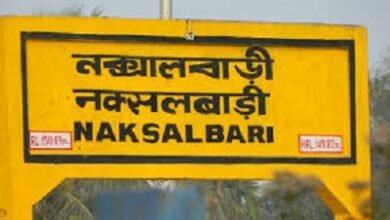
Special Report :- More generally, the reinvigoration of the Congress and the INDIA alliance – if it holds together (which at present seems likely) – means that the BJP will need to deal with a more vocal and active opposition. “No longer will parliament be muzzled and stifled as it has been over the past ten years”, said Sonia Gandhi, chairperson of the Congress.
Though the opposition will now be better positioned to enforce welcome checks on government action, some analysts believe Modi may double down on the Hindu nationalist agenda to try consolidating his power. In his victory speech, he spoke of the need to strengthen India’s arms industry, create jobs for youth, raise exports and support farmers.
The question is what he might do to pursue ideological goals he left unmentioned. Apart from the Uniform Civil Code, the BJP has already promised that it will move to enforce the Citizen Amendment Act, as the required rules were cleared by parliament just before the elections.
Major change is unlikely in India’s foreign policy, where Modi’s approach over his first two terms enjoys a high approval rate among Indians. Broadly speaking, the Modi government will probably continue to seek a diverse group of friends and partners – at the same time steering the country closer to the United States, striving to be a leading voice for the so-called Global South, and pursuing its ambitions of becoming a permanent member of the UN Security Council and the Nuclear Suppliers Group. It will also keep cultivating ties with Moscow, with which it has enjoyed good relations since the early days of India’s independence in 1947. India has a strong defence partnership with Russia and needs its support to manage prickly relations with China.

Beijing will remain at the centre of New Delhi’s international calculations. Bilateral relations have been frozen since 2020, when a clash on the disputed border left twenty Indian and four Chinese soldiers dead. The two sides have subsequently deployed an estimated 100,000 troops on either side of the border – and tensions remain high.
Though Modi has denied that Chinese troops have intruded into Indian territory, India has in fact lost access to at least 1,000 sq km of land it used to patrol along the border. Relations are also at a standstill with India’s arch-rival Pakistan, as they have been since 2019, when New Delhi accused Islamabad of letting suicide bombers kill 44 soldiers in Indian-administered Kashmir. During the campaign, Modi explicitly said he does not intend to restore relations with Islamabad.
Revealingly, Modi invited all the elected leaders from South Asia except Pakistan’s prime minister to attend his swearing-in ceremony. Although some anticipated that the Modi government might reach out to China and Pakistan once it had secured a third term, the BJP’s electoral setback makes the chances of rapprochement look slim, as Modi himself is unlikely to make a move that could further tarnish his strongman image domestically.
Manipur and Kashmir will also continue to pose security challenges for the Modi government. Militants in Manipur carried out attacks on 8 June, with insurgents in Kashmir following suit the next day. In the Manipur incident, suspected Kuki-Zo militants torched 30 houses and two police outposts, days after killing a Meitei farmer, in the Jiribam district, one of the few left with a mixed population.
About 200 people from both the Meitei and Kuki-Zo communities have been evacuated. Militants also attacked an advance security convoy, which was on its way to Jiribam to assess the situation before the chief minister’s visit, injuring two policemen. In the Jammu and Kashmir attack, militants fired at a bus carrying Hindu pilgrims in Jammu region’s Reasi district, killing nine people and wounding 33.
The attack was most likely timed to coincide with the swearing-in of the new government. There were three more militant attacks in the region in the next couple of days, injuring more than ten security personnel. The attacks in Manipur and Kashmir illustrate the shortcomings of the Modi government’s security policy in the previous term and cast a shadow over the next.
Source:ICG








